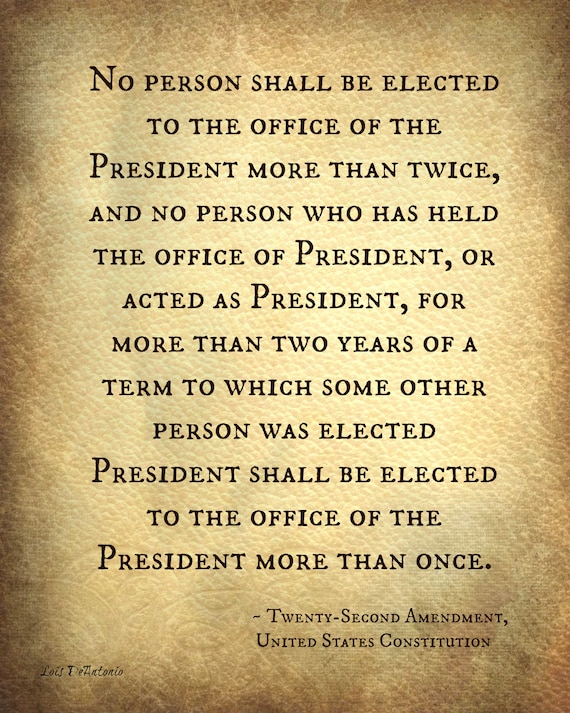I've searched for current information about the 22nd Amendment, and based on the latest developments, here's a comprehensive news article:

I've searched for current information about the 22nd Amendment, and based on the latest developments, here's a comprehensive news article:
The 22nd Amendment, which has stood as constitutional law for over 70 years, is facing renewed scrutiny in Congress. A new legislative push could fundamentally reshape how Americans elect their presidents, sparking debates about power, precedent, and the very foundations of presidential succession.
Rep. Andrew Ogles (R-TN) introduced H.J.Res.29 in January 2025, proposing a constitutional amendment that would alter the current two-term presidential limit established by the 22nd Amendment. The proposal suggests allowing presidents to serve three terms instead of two, marking one of the most serious attempts in recent years to expand executive power beyond the existing constitutional framework.
The resolution currently sits with the House Judiciary Committee, where it awaits further action. While previous attempts to modify or repeal the 22nd Amendment have consistently failed, this latest effort arrives at a politically charged moment.
Enacted in 1951, the 22nd Amendment was born from concerns about Franklin D. Roosevelt's unprecedented four terms as president between 1932 and 1944. Roosevelt had broken the unwritten two-term tradition established by George Washington, citing the need for stable leadership during World War II.
The amendment's language is clear: "No person shall be elected to the office of the President more than twice." It also includes specific language addressing vice presidents and those who serve as acting president, establishing complex rules about succession and eligibility.
The timing of this proposal coincides with Donald Trump's return to the presidency, reigniting discussions about whether two-term limits adequately serve national interests. Some legal scholars have raised intriguing constitutional questions about whether a two-term president could serve in non-elected capacities—such as vice president or acting president through the Presidential Succession Act—but these theories remain largely untested in law.
Don't expect this amendment to pass anytime soon. Here's why:
Repealing or modifying a constitutional amendment requires extraordinary political consensus. Two-thirds of both the House and Senate must approve the resolution, then three-quarters of all states must ratify it—meaning 38 states would need to agree.
Only one amendment has ever been repealed in American history: the 18th Amendment establishing Prohibition, which took another amendment (the 21st) to overturn. The practical and logistical obstacles are immense, and political divisions make such sweeping constitutional change nearly impossible in today's polarized environment.
The debate over presidential term limits has prompted serious constitutional analysis. Some scholars, including those writing in law review articles from 1999 onwards, have explored potential loopholes in the 22nd Amendment's language—specifically whether it limits only elected service or all forms of presidential service.
These academic discussions remain theoretical, however. Courts have never definitively ruled on these edge cases, and there's no indication they'll be tested in the foreseeable future.
While H.J.Res.29 represents the clearest legislative attempt in years to expand presidential term limits, it faces nearly insurmountable odds. The 22nd Amendment has survived over 70 years and multiple repeal attempts, reflecting a deep American commitment to preventing excessive executive power concentration.
Unless political circumstances change dramatically, expect this proposal to join the long list of unsuccessful term limit challenges gathering dust in congressional archives.
1. H.J.Res.29 - 119th Congress
2. The 22nd Amendment and Presidential Service Beyond Two Terms - Constitution Center
1. H.J.Res.29 - 119th Congress (2025-2026): Proposing an ...
2. The 22nd Amendment and Presidential Service Beyond Two Terms